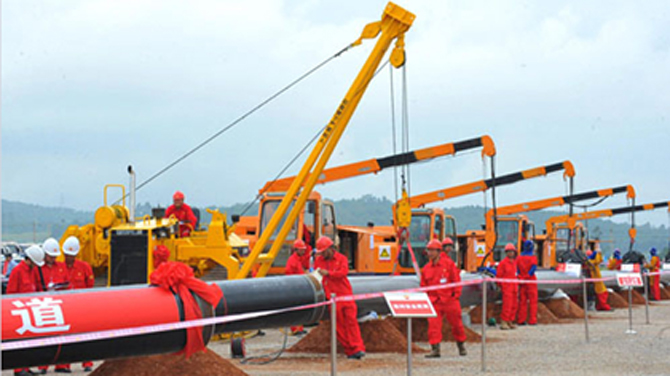Caution Urged on Asia’s New Economic Frontier

A refinery of that size would provide at least 60 percent of current fuel products demand in Burma, which has a small decrepit refining capacity and must import most petrol and diesel.
Such plans contradict suggestions that the new Burmese government has gone cold on China in the wake of the surprise suspension of China’s huge hydroelectric project at Myitsone on the Irrawaddy River.
“The Burmese military hopes that Western sanctions will be lifted, suggesting that it hopes to dilute Chinese influence,” says Chatham House’s Price. “This provides significant opportunities for the West, and for the US in particular, to effect change. At the same time, the West needs to be careful not to antagonize China, which remains the country with the greatest leverage over Burma.”
Macquarie University’s Turnell thinks the halting of the Myitsone project reflected “genuine disquiet amongst so many over excessive Chinese domination of the economy at both the macro and micro levels.”
That’s not a view shared by Ian Storey of the US conservative think-tank Jamestown Foundation. He believes it was little more than a check in the balance of relations between Naypidaw and Beijing.
“The two neighbors will seek to maintain close and cordial relations in recognition of inescapable geographical realities and to protect important shared interests,” opines Storey.
“Above all else, Beijing values stability in its Southeast Asian neighbor. Particularly, China’s interests are to protect its massive investments; secure uninterrupted access to the country’s rich natural resources, including oil, gas, minerals and lumber; ensure the safety of an estimated one to two million Chinese nationals living and working in Burma; and preserve peace and stability along their border,” said Storey.
The enthusiasm with which most of Burma’s neighbors have reacted to recent changes seems as much aimed at winning a slice of the potential business pie in a revitalized Burma as in any deep concern for democratic principles and human rights. They are clearly prepared to take a punt on the business climate getting better regardless.
However, some observers suggest that these early economic adventurers into a country where business has been moribund for decades could be in for a rocky ride.
Chatham House’s Price believes that more dramatic change “in one form or another” is inevitable in Burma.
“Few authoritarian rulers who try to manage a transition towards political liberalization have managed to maintain power throughout. Most lose power along the way either because of a putsch by hardliners or because they cannot hold back the momentum that they have created.”
« previous 1 | 2 |
|
||
|
||
- The ‘Virtuous Circle’ of Carrot & Stick Sanctions
- Suu Kyi Curbs Election Campaign After Falling Ill
- Burma Business Roundup (Saturday, March 24)
- Sea Tribunal Ruling: Bangladesh’s Gain, Burma’s Paying
- Burma Business Roundup (Saturday, March 17)
- Floating Toward Honesty: How Burma’s Bent Finances Can Go Straight
- End Near for Burma's Dual Currency Exchange
- Burma Business Roundup (Saturday, March 19)
- Chinese Trade Expo to Focus on Burma
- Dawei Port in Doubt with Bangkok Hub Plan
